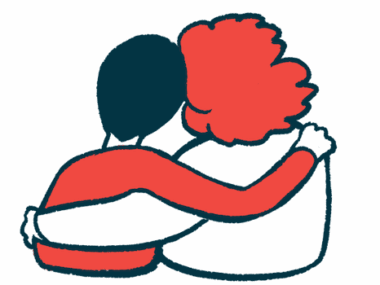It takes a village to support Parkinson’s patients and caregivers
The individuals and groups that help my husband and me navigate this disease
Written by |

I’m a proud great-auntie to three amazing little ones. My youngest great-nephew was born last summer, just a day after my mom’s birthday. He’s the first child of the next generation of our family to be born locally. We gather around him at family get-togethers and are in awe of his every move. Given that he began rolling over before he was 3 months old, we’re all convinced that he’ll be a naturally gifted athlete.
I have the privilege of babysitting the little guy whenever his parents need a hand. Spending time with him has given my husband, Arman, who has early-onset Parkinson’s disease, and me a new sense of purpose and happiness that cannot be explained. We feel so blessed to be part of the small village of family and friends closely involved in his life.
I always defer to the phrase “it takes a village” when reflecting on my time as a mother and the years I’ve spent raising children. Having a supportive team around at every stage of parenting is vital. Even now, with my children out of the house, I still depend on my village for all kinds of support.
Finding support in life with Parkinson’s
While a village is a helpful tool for parents, it’s also important for Parkinson’s patients and caregivers. Having friends or family to depend on can minimize feelings of isolation and loneliness.
When living with Parkinson’s, it’s crucial to surround yourself with people willing to learn about the diagnosis and get educated on the specifics of the disease, as well as the challenges and limitations involved. Spending time with people who understand all aspects of an illness is invaluable.
Neither Arman nor I like to focus on Parkinson’s or put it at the forefront of our lives. However, we have to be mindful and selective about activities and plans to ensure that he’s not only safe, but also comfortable and relaxed. The vast majority of our friends and family make it a point to ask us before planning anything. It never ceases to amaze me what a wonderful group of people we’ve chosen to surround ourselves with.
A support group for both the caregiver and the patient can be a fantastic part of one’s village. I participate in a monthly online support group for caregivers of Parkinson’s patients. It’s been wonderful to connect with these people, and I look forward to our meetings. While we’re all at different stages of the disease and experiencing various challenges, it’s been hugely helpful to learn from the other members and lean on them during difficult times.
Our medical team has been another tool in our extended village. We have a great relationship with our movement disorder specialist and other care providers. We recently added a palliative care group to the team, which should prove to be an asset.
As a parent, patient, or caregiver, having a village of mental and physical support can make the heavy days feel a bit lighter. Knowing that friends or family members are readily available to stop at the store to pick up medications or offer a listening ear provides an invaluable sense of security.
While it’s not always easy to find your village, as many don’t have close friends or family members nearby, there are, fortunately, many resources to explore. Local Parkinson’s groups are a fantastic place to start. Connecting with support groups and classes for Parkinson’s patients is a great way to meet others dealing with similar issues. Many online groups, classes, and opportunities are available if nothing is available locally.
As a columnist for Parkinson’s News Today, I hope to be a part of your village. As warriors in the fight against Parkinson’s disease, we’re in this together.
Note: Parkinson’s News Today is strictly a news and information website about the disease. It does not provide medical advice, diagnosis, or treatment. This content is not intended to be a substitute for professional medical advice, diagnosis, or treatment. Always seek the advice of your physician or another qualified health provider with any questions you may have regarding a medical condition. Never disregard professional medical advice or delay in seeking it because of something you have read on this website. The opinions expressed in this column are not those of Parkinson’s News Today or its parent company, Bionews, and are intended to spark discussion about issues pertaining to Parkinson’s disease.




Edward L Boye
Jamie, I am 80 years old and my wife who is 81 was diagnosed with Parkenson's and mild cognitive dementia 11 months ago. As you probably know it turns your life upside down. I am writing this on an especially difficult day. What do you and your husband do to keep a positive attitude? I do everything I can to take care of myself, swim, work out, paint art, and we have a caregiver 3 days a week. The greatest stress is the uphill climb of clear communication. She has a difficult time word finding and stringing words together to make clear what she wants to say. When we talk I have started calling it Senior Charades. We are piecing words together with familiar scenarios. Any help will be appreciated, especially for her to be able to express herself better. Thank you
Jamie Askari
Hi Edward, it sounds like you are doing a fantastic job caring for yourself and your wife. I love the humor of the name Senior Charades, as I feel that a sense of humor is key!! The communication challenge is very real, and we experience it as well. Keep taking care of yourself and look for the positives in each day. You got this!!!